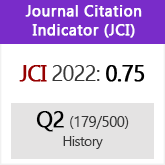La prehistoria del modo tributario de producción
DOI:
https://doi.org/10.3989/hispania.1998.v58.i200.629Keywords:
Prehistory, Neolithic Revolution, primitive society, precapitalist modes of production, origin of State.Abstract
The paper discusses some analythical implications of Haldon's 1proposals concerning the concept of «tributary mode of production» as a general historical cathegory describing the predominant form of social relations in pre-capitalist social formations. Since we assume this thesis, individual processes of emergence of «pristine» tributary social formations must be seen as particular cases of a general event: the origin of class society. That event has raised not attention in general controversy in despite of its evident centrality for Social Theory. The paper presents the outline of a general, theoretical framework in order to tackle the problem, through the discussion of the concept of «Neolithic Revolution», understood in social terms. The main conclusion of such discussion is that the tributary mode of production didn't proceed directly from «primitive communism». Archeology and Anthropology show us a rich variety of social forms in wich we can recognize «kin-ordered forms of surplus extraction», that is, pre-classist forms of exploitation. This discussion leads us finaly to propose the convenience of recovering concepts such as «germanic society» and «asiatic community» to account for this variety.
Downloads
Download data is not yet available.
Downloads
Published
1998-12-30
How to Cite
Vicent García, J. M. (1998). La prehistoria del modo tributario de producción. Hispania, 58(200), 823–839. https://doi.org/10.3989/hispania.1998.v58.i200.629
Issue
Section
Monographies
License
Copyright (c) 2019 Consejo Superior de Investigaciones Científicas (CSIC)

This work is licensed under a Creative Commons Attribution 4.0 International License.
© CSIC. Manuscripts published in both the printed and online versions of this Journal are the property of Consejo Superior de Investigaciones Científicas, and quoting this source is a requirement for any partial or full reproduction.All contents of this electronic edition, except where otherwise noted, are distributed under a “Creative Commons Attribution 4.0 International” (CC BY 4.0) License. You may read here the basic information and the legal text of the license. The indication of the CC BY 4.0 License must be expressly stated in this way when necessary.
Self-archiving in repositories, personal webpages or similar, of any version other than the published by the Editor, is not allowed.














